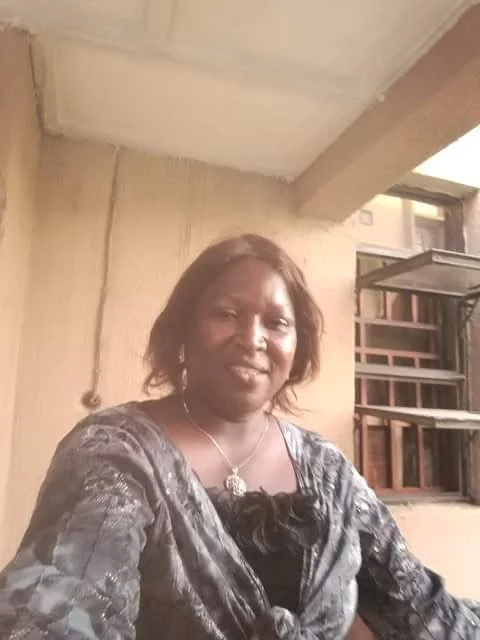Mrs. Eunice Oladoye — Of Strength and Nurturing in a Boulevard of Hope
Interviewed by Oluwakemi Agbato
Currently, Nigeria has the second-highest unemployment rate in the world. This has affected families increasingly as the financial burden is put on one person. Eunice is presently experiencing this and hopes for a divine intervention soon.
Kemi: Good afternoon. Can you tell us about yourself?
Eunice: My name is Oladoye Kehinde Eunice. I’m married with three (3) children, and I work as a cleaner in a student hostel.
K: What was your experience growing up?
E: It wasn’t easy at all. I grew up in Ogbomosho. My mom left my dad when I was two. I lived with my aunt till I finished junior secondary school. Because she could not afford to continue taking care of me or send me to school, I left to live with my dad.
My dad had a lot of wives and children so, he didn’t have time for me at all. I finished secondary school, but I did not go to university for financial reasons.
K: After secondary school, what did you do next?
E: I came to Lagos in 1997. I hoped to make enough money to send myself to university, but it didn’t happen. When I got to Lagos, I did many jobs. I worked as a shop attendant in Balogun market and Sura Market. I met my husband and had a child in 2008. We are not formally married, but we live together and we have 3 children. My children are 13, 10, and 3 years old respectively.
I left shop attendant jobs to sell thrift clothes in Balogun. I sold clothes for about three years However, the business wasn’t doing well. One of the main reasons for this was that people bought items on credit and refused to pay. It was also quite stressful. I decided to get another job to supplement my income. A neighbour of mine let me know they were hiring cleaners at the student hostel I work, and I got the job. Before I had my last child, I used to sell clothes after finishing my cleaning job, but I stopped selling clothes because it was taking more than it was giving.
K: You’ve been working for a long time. How do you think this compares with stereotypes of women confined to house chores and child care?
E: Nigerian women don’t have many rights. There are also issues of paternity and child care. From my experience and of people close to me, I’ve found that most Nigerian women are the providers. In my case, my husband is a university graduate of Economics from Lagos State University, but he has been unable to get a job for the past ten years. If I stayed at home thinking it is a man that’s supposed to provide, my life would be much harder than it is.
K: What do you enjoy about your job?
E: A good number of the students value my work and are very appreciative, and that makes me happy.
K: What do you dislike about your job?
E: The repetiveness of it. It doesn’t help those students can be dirty, and a space you cleaned that day could be untidy the next day.
K: What are your hopes for the future?
E: I think what I want most is stability. I want things to continue to improve for my family and me. I want things to be better for my children. I don’t want them passing through the same struggles as I did. I would like for my working conditions to improve. It will happen if more people are employed and perhaps people who have been working here longer can be hired as supervisors. I also don’t mind owning my own cleaning company.
Honestly, all I want is for God to do miracles in my life
K: Is there anything you would like our readers to support?
E: I don’t have a business right now, but I would appreciate it if they could connect me to job or business opportunities.
Writer’s note: Some parts of this conversation were translated from Yoruba.
If you would like to connect with Mrs. Eunice Oladoye, please reach out to us via info@sisterlyhq.com. Please, note that we will only respond to legitimate inquiries and requests.
